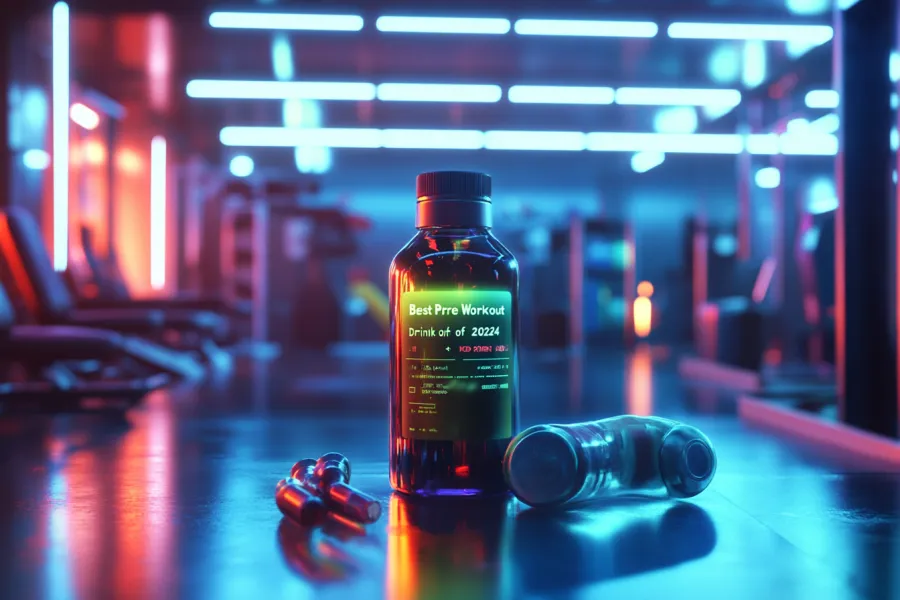Looking for a natural way to boost your baby’s health? Discover the power of baby probiotics.
Our Top Picks
Becoming a new parent comes with so many choices, especially when it comes to what and how to feed your baby. Whether you’re breastfeeding, formula feeding, or a bit of both, it’s almost inevitable that your baby will experience some tummy troubles along the way. When your child is born, they are introduced to an entirely new environment, and when they are fed, new bacteria enter their gut and disturb their gut health. When problems like this arise, solutions are also available. You can improve your infant’s gut health and overall immunity by using baby probiotics. They introduce beneficial bacteria to your baby’s gut and help resolve such issues. If you’re not sure which probiotic to use, don’t worry—we have listed the best baby probiotics in this guide after reviewing a number of options. These are trusted by professionals and safe to use. Explore each of them below.
1
Roe Wellness Baby Probiotic
Our first pick for baby probiotics is a powerful combination of serum and barrier cream that work synergistically to fight dryness, irritation, and redness on your baby’s face. The serum deeply hydrates and nourishes your baby’s skin, while the barrier cream locks in that moisture and fortifies the skin’s protective barrier.
The texture of the cream and serum is non-greasy, and unlike other products that leave a sticky residue, this one absorbs well into the skin and leaves it soft and smooth. The use of this product is not limited to babies only—if you’re someone with sensitive and dry skin, you can apply it, and it works well across different age groups.
Reduces water loss and allergen penetration
Safe for all skin
Fights free radicals
Takes time to see result
2
Lovebug Baby Probiotics
Are diarrhea and constipation giving your little one a tough time? These baby probiotics—a blend of 8 clinically studied strains—will provide instant relief and improve your child’s overall gut health. The probiotics come in powder form that you can mix with your baby’s favorite drink or food.
Knowing that the probiotics will relieve your child’s discomfort only if they reach the intestine effectively, the product uses a patented delivery system known as BIO-tract®, which helps the probiotics survive the harsh environment of the stomach. To further make them suitable for kids, these probiotics are formulated without major allergens like gluten, soy, nuts, and dairy. They are also free from artificial colors, flavors, and preservatives.
Softer bowel movements
Easy-to-take powder
Natural ingredients
Takes some time to dissolve
3
Klaire Labs Ther-Biotic Baby Probiotic Powder
This baby probiotic is particularly beneficial in establishing a healthy gut microbiome for babies who might have had their microbiota disrupted by cesarean delivery, antibiotic use, or formula feeding. With a blend of 10 different species of probiotics, including both Lactobacillus and Bifidobacterium species, this product is sure to improve the immune and digestive systems of your little one.
Aside from being colorless, flavorless, and free from preservatives, you will find this to be hypoallergenic—free from common allergens such as milk, casein, eggs, fish, etc. Plus, the probiotic comes from a trusted brand—Klaire Labs—and its products are often recommended by healthcare professionals.
Infant-specific probiotic strains
Supports gut and immune health
Hypoallergenic and easy to mix
Pricey
4
Culturelle Baby Probiotic Drops + Vitamin D
With this baby probiotic, your infant’s digestive support and bone health development will go hand in hand—it is not just a probiotic; it also comes with Vitamin D to support bone health. To improve gut health, it uses Lactobacillus rhamnosus GG and Bifidobacterium lactis BB-12, the two most researched probiotic strains for infants.
The dropper design of the product is easy to administer, and you don’t need to store it in the refrigerator. Plus, it is suitable for babies with sensitivities as it is free from common allergens, including dairy, soy, and gluten, and is non-GMO.
Supports digestive health
Boosts immune system
Gluten-free and non-GMO
Dropper gets messy over time
5
BioGaia Immune Active Baby Probiotic
Like our previous pick, this baby probiotic also includes Vitamin D, but not just that—it has more to offer. It includes Lactobacillus reuteri, one of the most clinically studied probiotics, which is particularly effective in reducing colic and improving overall digestive health in infants.
Additionally, this baby probiotic is trusted and recommended by pediatricians. It is supported by over 30 years of research and more than 260 clinical studies. It does not include any unnecessary ingredients—it only contains the probiotic strain and Vitamin D3.
Comes with Vitamin D
Boosts immune system
Pediatrician trusted
Small size
FAQ
Q: Can baby probiotics help with colic?
A: Many parents report that baby probiotics can help reduce colic symptoms. Probiotics may improve gut health, which can alleviate digestive discomfort and potentially reduce colic episodes.
Q: When should I start giving my baby probiotics?
A: You can start giving baby probiotics at any age, but it’s best to discuss with your pediatrician first. They can recommend the right strains and dosage for your baby’s age and health condition.
Q: Can I give my baby adult probiotics?
A: It’s generally not a good idea to give your baby adult probiotics. Adult probiotics often contain higher doses and different strains of bacteria that may not be suitable for an infant’s delicate system. Babies have specific needs, and probiotics designed for them are formulated with the right strains and dosages to support their developing gut. If you’re considering probiotics for your baby, it’s best to stick with products specifically made for infants to ensure safety and effectiveness. Always check with your pediatrician first.
Q: How should I store baby probiotics?
A: Storing baby probiotics properly is key to keeping them effective. Some probiotics need to be kept in the refrigerator to maintain their potency, while others are shelf-stable and can be stored at room temperature. Always check the packaging for specific storage instructions. If refrigeration is required, be sure to keep them in the fridge immediately after each use. For shelf-stable probiotics, just store them in a cool, dry place away from direct sunlight. Following these guidelines will help ensure the probiotics remain beneficial for your baby.
Q: What are the signs that my baby needs probiotics?
A: If your baby often has digestive issues like excessive gas, constipation, or diarrhea, it might be a sign that their gut could benefit from probiotics. Other signs include frequent fussiness, colic, or a history of antibiotic use, which can disrupt the balance of good bacteria in their system. Some parents also notice that their baby has trouble with regular bowel movements or seems uncomfortable after feeding. If any of these sound familiar, it might be worth considering probiotics to support your baby’s digestive health.
Article Contributors
Ynet News Shopping Team
Ynetnews Shopping team provides authoritative advice and reviews, distinct from the editorial team, to inform your decisions. To guarantee the correctness of product sizes, availability, and prices, AI tools are utilized in the process.














